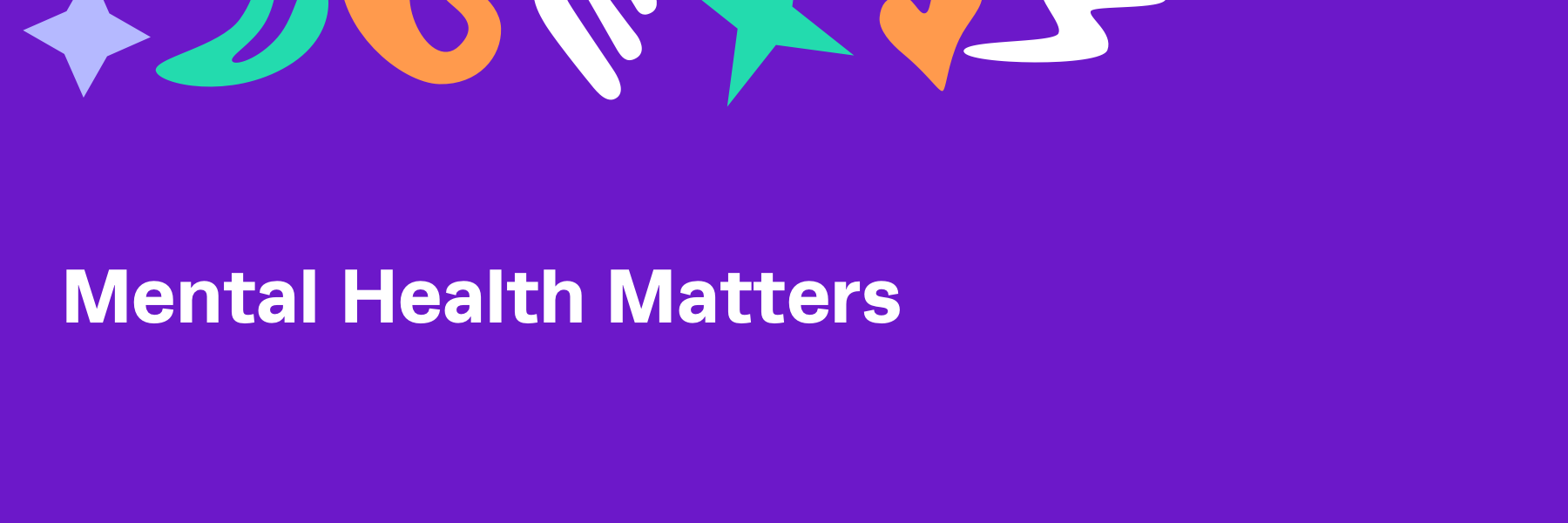Mental Health Matters

Back in August, in Miami, local police officers saved a young man from ending his life. He was hanging from an overpass, over one of the busiest highways in our city, at the young age of 19. As I write this post, I don’t have an update on his condition, other than he survived thanks to a brave rescue team and that he was taken to a hospital for observation… and hopefully treatment. I reiterate, a young man at the age of 19 tried to end his life.
Separately, Politico reported that one in four young adults between the ages of 18-24 say they considered suicide in the past month because of the pandemic, and in New Mexico, there are news reports of a 30% increase in children and teenagers going to emergency rooms seeking mental health treatment. I don’t even know where to begin with this. When our younger generation is struggling to get through this unprecedented time, it paints a very dark picture for our future.
Where am I going with this? October 10th is World Mental Health Day. Started by the World Federation for Mental Health in 1992, to raise awareness among the global community that mental health matters. This year, I feel that we need to reflect and reconcile why mental health matters more than ever.
Mental illness is real.
Let me start by saying that anyone struggling with a mental illness should never be referred to as a “crazy person” or a “person with issues.” Mental illness is real, and we need to face that fact and be honest about it. We all have stressors in life. Work, family, financial obligations, death of a loved one, moving, chronic illness, – all of which can take a toll on us. More importantly, there are physiological reasons that cause us to react differently to these stressors… and this is where we start losing focus as a society. None of us are immune to it, and all of us should be able to talk about it, recognize the signs and get help.
The CDC reports that an estimated 50% of all Americans will be diagnosed with a mental illness or mental health disorder in their lifetime. One stat that particularly weighs on me is that one in five children, either currently have or will have a seriously debilitating mental illness in their lifetime. That’s 20% of children. Let that sink in for a moment because that’s our future right there. Half of all chronic mental illnesses begin by age 14 and three-quarters begin by age 24. If I interpret this correctly, children going through puberty, and those young adults who are entering their professional adult lives will have a chronic mental illness.
Why does mental health matter?
Mental health is the foundation for our emotions, thinking, communication, learning, resilience and self-esteem. Mental health is also key to relationships, personal and emotional well-being and contributing to community or society. It’s a real medical condition and nothing to be ashamed of. Just like diabetes or a heart condition, mental illness is treatable and every day we learn more about this through open conversation and honesty.
That said, mental health disorders can be difficult to treat. Many may not see the signs in themselves or their loved ones. Sometimes there are cultural beliefs or backgrounds that may prevent them from seeking help because it’s considered weak, and then there are those that need help so badly, that they don’t know where to begin. There’s no “one-size-fits-all” treatment. Depression, anxiety, schizophrenia, bi-polar disorder, dementia… all mental health disorders with very different treatment options, none of which include a solid cure, but can be managed through therapy and medication. Perhaps this is why society has a hard time considering mental health conditions as “actual” health conditions.
My take on mental health.
It’s critical that we are able to take care of our mental health to be able to survive and thrive in society. We often find ourselves just moving forward and not taking a minute to care for ourselves, or we’re too quick to judge others. I challenge you to look at yourself or look around you and read the room with informed eyes. It’s not enough to say to someone “this is just a bad time, it’ll get better,” or “try to think positive.” It doesn’t help to tell someone to “calm down” or “have some tea to relax”. It certainly doesn’t help to tell someone who has bi-polar disorder or schizophrenia that they’re “acting erratically and need to control themselves” or get frustrated when someone with dementia asks you to repeat something over and over.
Mental disorders are real, chronic conditions that can be treated, and until we learn to see the signs in ourselves and others, we won’t succeed in reducing those alarming percentages the CDC is reporting. Sadly, we read about them every day, and then we’ll often hear people talk about how they saw the warning signs, but never took any action. Taking action is key to potentially save a life.
Getting treatment is not a sign of weakness… in fact, it’s probably the bravest thing an individual can do. Finding the right treatment will give the individual the tools to manage their condition and rebuild their life. If you don’t know where to begin, a good starting point could be here, locating a treatment center that will work for you or your loved one. Know the warnings signs and symptoms of mental illness, and learn about the conditions.
Know the signs. Take action. Don’t give up. Mental disorders are more common than many would like to believe, but together we will become stronger.
Mental Health matters.
Related Stories:
David Chang Opens Up About Bipolar I Disorder
https://people.com/food/david-chang-opens-up-bipolar-disorder-new-memoir/
Pandemic’s Emotional Hammer Hits Hard
https://www.npr.org/sections/health-shots/2020/09/02/908551297/pandemics-emotional-hammer-hits-hard
Antidepressants: 3 Women Reflect on How Their Relationship With Their Medication Has Changed with Lockdown
https://www.stylist.co.uk/life/antidepressants-mental-health-lockdown-coronavirus/421852
Mental Health and The Family: Recognizing Warning Signs and How To Cope
https://www.mhanational.org/recognizing-warning-signs
Rely on Kipu to keep you ahead of change.
Subscribe to Kipu for behavioral health news, updates, community celebration, and product announcements.




